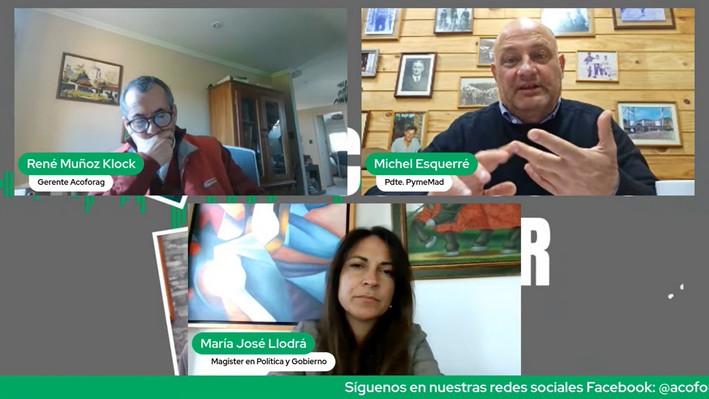The national president of Pymemad, Michel Esquerré, presented a critical diagnosis of the forestry industry situation in Chile during Conversando con la Acoforag. He detailed that over the past five years, more than 200 sawmills have closed, resulting in the loss of thousands of direct and indirect jobs.
"We are facing a systemic failure that began over fifteen years ago when support for small and medium-sized forest owners was discontinued," stated Esquerré, citing data from the Forestry Institute (Infor). He recalled that previously there were instruments like Law 701 that encouraged planting across different productive segments, but over time, medium-sized owners were left out of state support.
Lack of Dialogue and Cooperation Culture
For Esquerré, the crisis is not solely the state's responsibility but also the sector's own. "We all failed: large companies, SMEs, and trade associations. We didn't speak up in time, there was no dialogue or cooperation. Chilean business tends to be very individualistic, with little productive linkage," he asserted.
The leader noted that only after the major fires of 2017 and 2023 did coordination instances like Futuro Madera emerge, bringing together various trade associations to address common challenges.
Decline in SME Export Participation
The impact on small and medium industries is evident: while in 2015 they represented about 10% of forestry exports, today they do not exceed 4%, with increasing concentration in the hands of large companies.
Esquerré explained that most Pymemad members produce for the domestic market, while large companies dominate the export business from the ports of Biobío and Ñuble. "In these regions, large companies' participation exceeds 90%. We don't compete with them because the difference is enormous," he stated.
Relationship with the Environment and Society
Another point addressed was the social and political perception of the sector. Esquerré criticized the lack of recognition of forestry's contribution to decarbonizing the economy, as well as the absence of a constructive relationship with the Ministry of Environment. "In other countries, forest planting is promoted as a climate strategy. In Chile, however, the view towards the forestry sector is one of distrust," he said.
This disconnect, he assured, worsens when fires occur. "The public believes that large companies don't suffer losses because they have insurance, but the greatest damage is suffered by small and medium owners, who see their homes, nurseries, and lifelong savings in a forest go up in flames."
A Call for a New Sectoral Pact
Faced with this scenario, Esquerré called for rethinking the relationship between large companies, SMEs, contractors, academia, and the State. "We're not asking for subsidies, we're asking to be included in strategic plans. Every investment decision must consider its effect on communities and the small industries that sustain the sector," he emphasized.
He warned that as long as internal disconnection persists and a common narrative isn't built, it will be difficult to reverse the sector's negative image. "The damage to one is the damage to all. If we fail to convey that idea, we will continue to allow negative talk about the forestry sector without having the strength to counter it," he concluded.
The full interview on Acoforag's YouTube channel:







Comments (0)
No comments yet. Be the first to comment!
Leave a comment